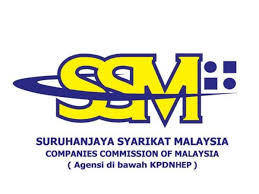Types of Business Entities in Malaysia
5 min read
When you decide to start up your business and putting your dreams into reality, you will also need to decide what kind of Business Entity to be formed. Basically in Malaysia, there are 4 kinds of Business Entities which are:
- Sole Proprietor which should be operated by an individual.
- Parnership which is operated by 2 or more individuals. There should not be more than 20 parners in this parnership.
- Limited Liability Partnership (LLP) which is operated by 2 or more individuals.
- Company or Foreign Company which is registered under Malaysia’s Company Act 2016.
As for the name of your Business, Sole Prop and PArtnership allows you to chose your own choice of name which is subject to approval from Malaysia’s SSM or Companies Commission of Malaysia. For the LLP name, the chosen name must end with PLT (Perkongsian Liabili Terhad). As for the company, the chosen name must be ended with “Sdn Bhd” or “Bhd”.

For Capital Contributions, the Sole Prop and Partnership are bajsed on own contributions and partners contributions. As for the LLP entity, is also based on the partners contributions. Finally on Capital Contributions in a company, is referred as Share Capital.
The owners of a Sole Prop and a Partnership are referred to as Sole Proprietors and Partners respectively. As for the LLP company, the owners are referred to as partners and has a share in the capital and profits of the company. Owners of a company are called members or shareholders whom own shares in the company. By owning shares in the company, gives them certain rights in relation to the company.
The main highlight for different business entities is the Legal Status of the business entity. For Sole Props and Partnerships, the owners and the business entity are not separate legal entitites. This also means that the liabilty of the business is also directly borne by the business owner. It is otherwise for companies and LLPs where the legal entities are separate.
Still on liabilities, the responsible parties that are liable for debts of the business of Sole Props and Partnerships are the owners themselves. The LLP and the Company will be liable for the debts of the company. The owners of the LLP and Company are separated from the liability of the business.
As for personal liability, owners of Sole Props and Partnerships are the most liable to unlimited liabilities which can extend to their personal assets. However, there won’t be any personal liabilities on the owners of LLPs and Companies.
As for the management of the business, the responsibilities lies with proprietor for Sole Props, Partners for Partnership and LLP. As for companies under the Jurisdiction of Companies Act 2016, the Board of Directors for are responsible for the business management.
On Company Secretary or Compliance Officer, a company under the Malaysian Companies act 2016 is required to have a Qualified Company Secretary. As for LLP business entity, must have a compliance officer or a partner who is a company secretary. Sole Prop and Partnerships are not required to have any company secretaries or compliance officers.

Sole Props, Partnership and LLPs are not required to carry out any Statutory Audit. Unless it is provided in the partnership agreement, an LLP needs to carry out a Statutory Audit. All companies which are under the Companies Act 2016 which has a “Sdn Bhd” or “Bhd” behind their names must carry out a Statutory Audit by a licensed Auditor. In Malaysia, all Licensed Auditors must be registered under the Ministry of Finance.
There are no annual compliance for Sole Props and Partnerships in Malaysia. However, it is recommended that these businesses to at least have their Management Accounts ready for Tax submission purposes. As for Companies, must file their annual returns and financial statements every calendar year. LLPs must lodge an annual declaration and solvency statement with CCM (the 1st within 18 months from the date of registration and thereafter, 90 days from the end of the financial year).
Compared to Companies, Sole Props and Partnerships does not need to file any Annual Returns with Audited/ Unaudited Financial Statement. LLPs needs to submit their Annual Declarations. Sole Props and Partnerships are required to pay an annual fees of RM60.00 to SSM whilst Companies and LLPs are required to pay an annual fee of RM200.00.
All business entities in Malaysia are liable for Taxation and are also considered to be Tax Residence of Malaysia. Partner and partners of Sole Props and Partnerships are to be taxed based on personal income taxes. For assessment year 2020, the rates begins from 0% for the first RM5,000.00 of income up to 30% for incomes more than RM2,000,000.00. Taxes for companies and LLPs are to be taxed 20% on the first RM500,000.00 for SMEs and 25% over RM500,000.00. Malaysia’s individual and corporate taxes are progressive.
As for rules and regulations, Sole Props and Partnerships are under the jurisdiction specified in the Schedule of the Registration of Businesses Act 1956 (ROBA 1956) & ROBA Rules 1957. On LLP, the jurisdiction is under the Limited Liability partnership Act 2012 (LLP), Limited Liability Partnership Regulations 2012. Finally, for Companies, thej jurisdiction is under the Companies Act 2016 which was rewamped from 1965.
To simplify the advantages and disadvantages of each of the 4 business entities, here are the following points:
a. Sole Proprietor
i. Less paperwork & additional formalities (registration is easy, fast and very little documents are needed);
ii. Unlimited Liability;
iii. Simple Administration(Not compulsory for statutory audit);
iv. Low Compliance Cost;
v. Suitable for newly start-up business with low entry cost;
vi. Not required to disclose financial statements to the public.
b. Partnership
i. Less paperwork & additional formalities (registration is easy, fast and fewer documents are needed)
ii. Unlimited Liability,
iii. Simple Administration (Not compulsory for statutory audit),
iv. Lower Compliance Cost
v. Suitable for newly start-up business with low entry cost
vii. Not required to disclose financial statements to the public.
c. Limited Liability Partnership (LLP)
i. Less paperwork & additional formalities (registration is easy, fast and fewer documents are needed)
ii. Limited Liability,
iii. Simplest Administration (Not compulsory for statutory audit),
iv. Local resident compliance officer is required to setup LLP
v. Lower Compliance Cost
vi. Suitable for newly start-up business with low entry cost
vii. Not required to disclose financial statements to the public.
viii. Perpetual succession :
ix. The changes status of the partners will not affect the existence of the LLP corporation
d. Company (“Sdn Bhd” or “Bhd”)
i. More paperwork & more expensive
ii. Limited Liability
iii. Complexity in Administration (statutory audit, AGM, board resolution and etc)
iv. Higher Compliance Cost
v. One local resident director are required to setup a Company
vi. Suitable for business affordable to maintain business with higher operation cost
vii. Public will have access to financial affairs of the company.
To conclude this article, if you ask us, we would prefer a company over other business entities. This is due to the fact there are protections when it comes to individuals or owners facing liabilities of the business. There is also some new additions in the Malaysian Companies Act 2016 where incorporation of companies can be done by sole director and shareholder. At the same time, a company offers limited liability features.



